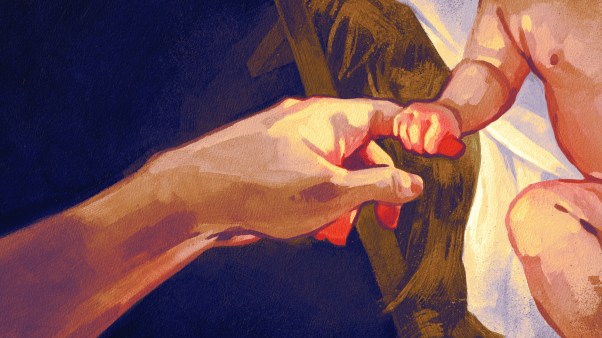Years before gifting our daughters with pet rats, I tried my hand at training one of the furry critters myself. My psychology professor had tasked me with conditioning my subject to press a lever for food, but I fantasized instead about designing a convoluted maze and teaching my little Theseus to win freedom from the enclosure in record time.
I had no interest in distressing my diminutive friend. Instead, I conceived my plan in humane terms. Pushing his tiny brain to its limits would help him develop his full potential, winning my gratitude and a monstrous hunk of cheese.
The Greek myth of innocent Athenians escaping a labyrinth and its man-eating minotaur has spawned many a variant over the centuries. In Edgar Allan Poe’s short story “The Pit and the Pendulum,” a captive of the Spanish inquisition struggles to survive a lethal dungeon. Wrongly imprisoned brothers strategize escape in the popular TV series Prison Break. A kidnapped, routinely assaulted young mother risks death to free her child in Emma Donoghue’s critically acclaimed novel Room (and its equally lauded adaptation by Lenny Abrahamson).
Each tale provides audiences the opportunity to imagine what they themselves might do if confronted with capture, their options as limited as their mobility. Which relational ties would we preserve, and which abandon, to gain our freedom? What ambitions would suddenly appear trivial? Which values disposable?
And what of faith? Can we never know the mettle of belief until our lives are on the line?
Jesus proclaimed himself the path to true freedom, audaciously redefining an ideal grasped tightly by a people under Roman occupation. Granting “freedom for the prisoners” (Luke 4:18) meant not a reordering of the social matrix but a recalibration of expectation—a transformation of desire itself. Becoming “free indeed” (John 8:36) had little to do with political revolution undertaken to eliminate stigma and usher in material equality. Instead, this new freedom promised first an escape from the weight of sin (Rom. 8:1–2), a release enabling radical, equalizing acts of caritas (Gal. 5:13) hidden from both a spectacle-hungry public and one’s own ego (Matt. 6:1–4).
One might, like Paul and Silas, remain truly free while yet a prisoner, retaining invisible agency though a victim of injustice.
The film Heretic, directed by screenwriting duo Scott Beck and Bryan Woods, explores the plausibility of this kind of freeing faith. Mr. Reed (Hugh Grant) has entrapped two young Latter-day Saint missionaries, Sister Barnes (Sophie Thatcher) and Sister Paxton (Chloe East) in his home.
It’s the sort of situational crucible familiarized by 21st-century horror. Instead of being forced by a hidden antagonist to saw off limbs or kill a friend to obtain freedom, Sister Barnes and Sister Paxton verbally spar with a captor they can see while seeking a way out of his underground maze.
The adversarial dialectic which unfolds touches on the evolution of world religions, shifts in church doctrine, and the nature of personal belief. At the center of this ideological maelstrom—an exchange that grows stormier once the women realize they have been kidnapped—lies a question once posed by the Roman governor of Judea: “What is truth?” (John 18:38).
Mr. Reed claims to have found a definitive, ancient answer following years of academic study, and he attempts to methodically break down the missionaries’ own belief system by spotlighting the malleability of religious truth. He opens by asking, in a deceptively gentle manner, how they feel about polygamy. The Church of Jesus Christ of Latter-day Saints chose to outlaw the practice in 1890, he notes, because the determination to grow their numbers kept stumbling over public disdain. He steamrolls Sister Paxton’s argument that God temporarily consecrated this ancient practice, suggesting instead that Joseph Smith desired license for an uncontrollable libido.
Physical passion, Mr. Reed implies, is a universal imperative, a physiological truth religion has only sanctioned when it has benefitted particular leaders. And fickle emotions, not intellectual assent, he argues, motivate the faith of many a layperson. When Sister Paxton observes that she knows the Book of Mormon to be true because of how it makes her feel, Mr. Reed pounces. Is emotion the final arbiter of human destiny, a shifting but foundational truth beneath all other apparent truths?
Or could it be that the unshakable fact of human existence is the one Mr. Reed ultimately discloses, a conviction that frees him to practice cruelty without moral scruple? I’ll allow you to discover for yourself.
The two missionaries presumably live by a code of honesty, a key virtue in Joseph Smith’s 13th Article of Faith. Yet they begin lying as swiftly as they cease proselytizing once they suspect Mr. Reed’s motives.
Is integrity of word and mission a principle held only when safe and comfortable? What happens to prayer and a belief in miracles when we’re shut up in a cage with no key? Are these twin elements, rooted in transcendent reality, vital organs that work the harder when life hangs in the balance or skins we quickly shed to escape constricting circumstances?
Heretic poses, rapid-fire, even more questions than I’ve framed here, doing so in a way that avoids the didactic and eludes easy answers. Fortunately, we don’t need to share the missionaries’ religious affiliation or Mr. Reed’s cynicism to appreciate the film’s aggressive interrogation of faith. Belief in Christ rooted more deeply than rhetoric will only grow stronger in the face of such a challenge. A determination to know the Truth is more than enough to set us free.
Paul Marchbanks is a professor of English at Cal Poly State University. His YouTube channel is “Digging in the Dirt.”














